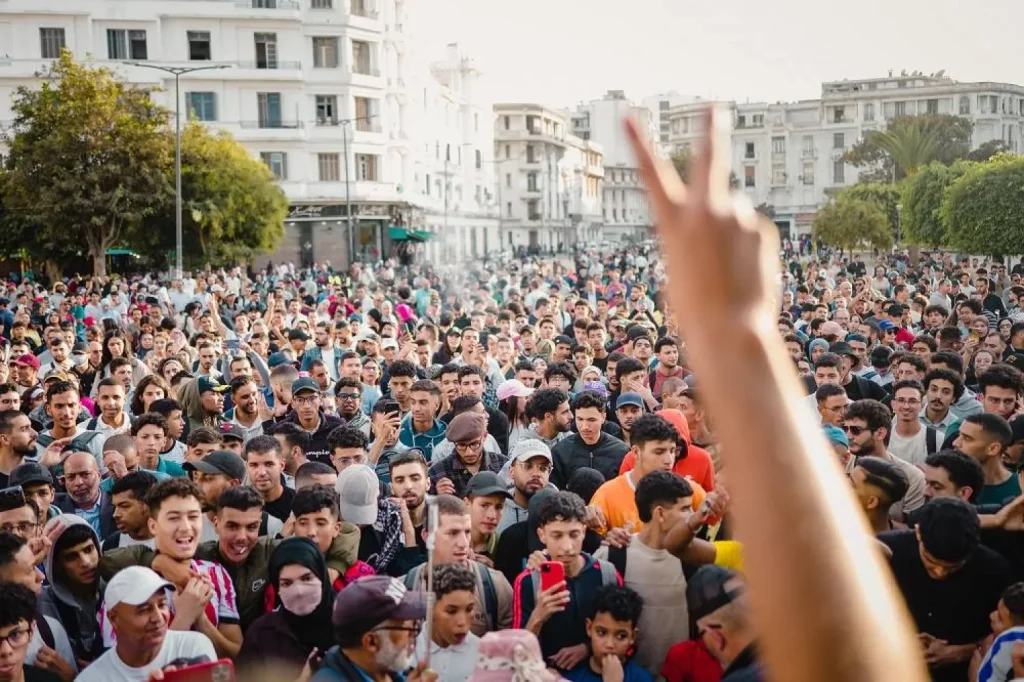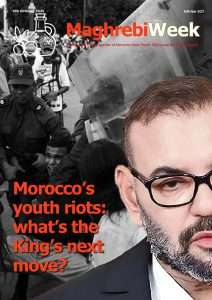Anti-government protests in Morocco demand better healthcare

Youth-led protests once again filled the streets of Morocco, as many citizens hesitated to join after a peaceful demonstration days earlier turned violent when police opened fire, leaving three people dead, according to the Associated Press on October 3rd.
This has been the sixth protest so far, which has covered many cities. Each demonstration follows demands for better hospitals and schools in the country, as well as many calling for Morocco’s Prime Minister, Aziz Akhannouch, to resign.
In the previous protests, security forces opened fire on demonstrators, killing three people in the process, in a small town in Leqliaa. It had been reported by Morocco’s Interior Ministry that the three people who had been killed attempted to get hold of police weapons; however, no eyewitnesses can corroborate the story.
According to the ministry statistics, more than 70% of the demonstrators were minors, who were organised by a leadless group called Gen Z 212. And they have travelled and spread widely to bring out their message to Morocco.

The protests focused on Morocco’s worsening financial situation, highlighting the lack of funding for schools and hospitals while billions are being invested in preparations for the 2030 World Cup. Demonstrators voiced their frustration with chants such as, ‘Health care first — we don’t want the World Cup!’ echoing through the streets.
“The right to health, education and a dignified life is not an empty slogan but a serious demand.” Gen Z 212 had said in a statement.
It appears that these protests are becoming more difficult to manage with violence getting out of control. The Moroccan association for human rights confirmed that dozens were arrested on September 27th which some of these arrests left people physically injured by the Moroccan police. It was also known that the association has stated that this is evident for a “crack down on free voices and restrictions of the right to freedom of expression.”
This isn’t the first protest this year for Morocco stand on Anti-Government. Early this February there were protests by the unions to show their strong disapproval for legislation that would annihilate their right to strike.
It is no doubt that Morocco’s youth has felt unheard and neglected by the system that govern health care and it has been a long wait for the system to change, which is why it led to a peaceful protest to start with.
Maghrebi’s editor and Chief, Martin Jay, spoke to RT in an interview discussing the matters of the protest; “I think young people are becoming more informed both domestically and internationally.”
Jay went on further to add that “when the government announces on the news every day about the new state of the stadium which will be built for the World Cup, which have better healthcare facilities than most hospitals in Morocco , you can understand the flare up.”
Protests in Morocco continue and are becoming increasingly destructive, posing growing challenges for smaller communities to manage. The protests signify hope for the hospital and educational system and the funding and resources for this, whether this will come to fruition still is uncertain.
Associated Press, Maghrebi.org
Want to chase the pulse of North Africa?
Subscribe to receive our FREE weekly PDF magazine










